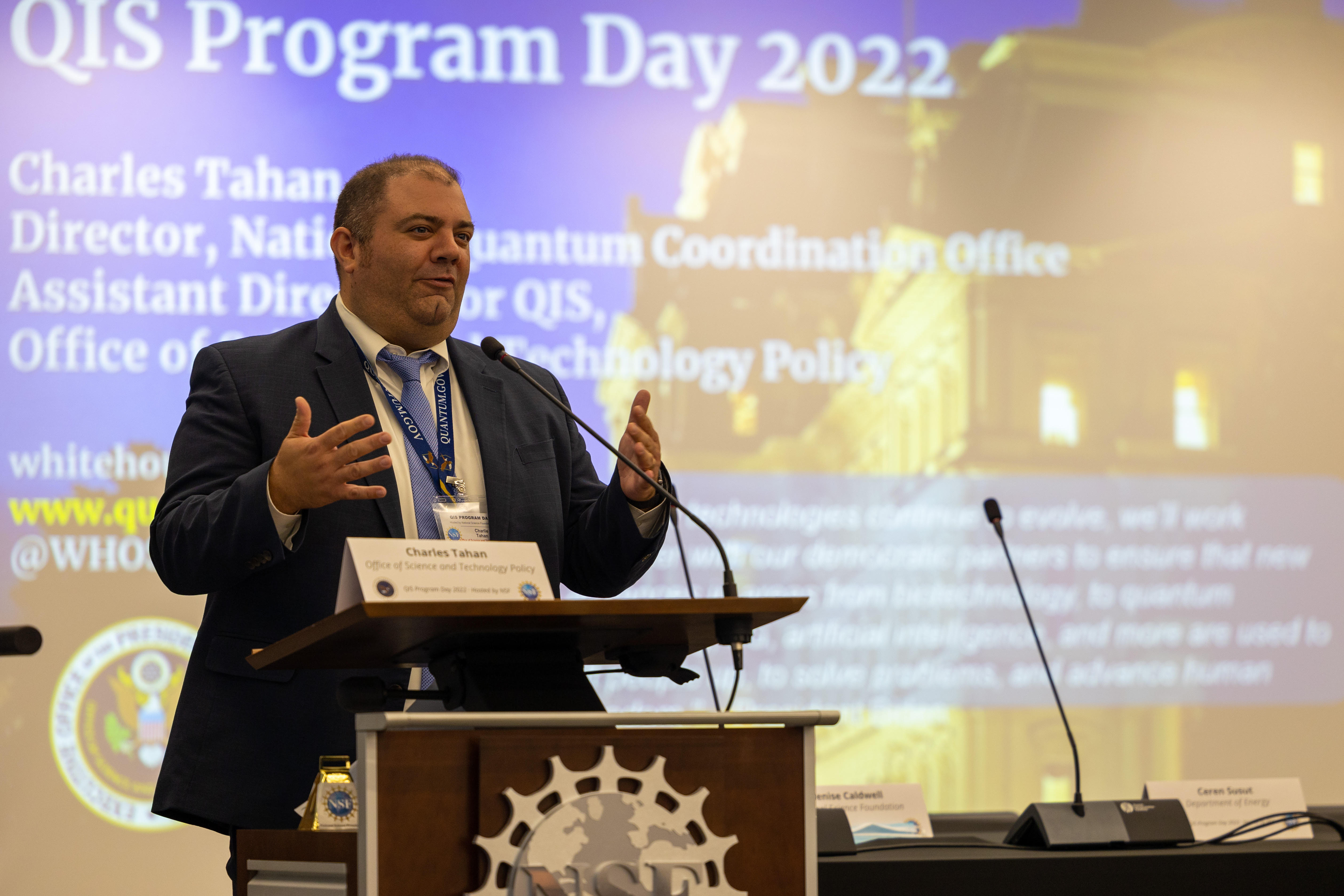Charles Tahan, who recently stepped down as director of the National Quantum Coordination Office (NQCO), is now bringing his expertise as a quantum physicist and a leader in the quantum research community to the University of Maryland. After leaving NQCO this month, he is taking on new roles at UMD as a visiting research professor in physics and a special advisor to President Darryll J. Pines and Vice President for Research Gregory F. Ball. Charles Tahan in 2022 speaking at QIS Program Day, which is an annual gathering of quantum leaders from across the US Government. Credit: National Quantum Coordination Office
Charles Tahan in 2022 speaking at QIS Program Day, which is an annual gathering of quantum leaders from across the US Government. Credit: National Quantum Coordination Office
Tahan served as the director of NQCO beginning in 2020, and before that, he was the founder and director of the Laboratory for Physical Sciences Qubit Collaboratory—a national research center. It serves as a collaborative hub for academia, industry and government research on quantum information processing and associated technologies.
Tahan also leads a quantum information research group that studies topics like various device designs for storing qubits—the basic information building blocks of a quantum computer. In his new role as a special advisor, he will provide recommendations to guide UMD’s efforts in cutting-edge quantum research and transitioning quantum capabilities from the lab to use. Today, there are more than 200 scientists and engineers at UMD exploring topics related to quantum science and technology. The university is a leading member of the Mid-Atlantic Quantum Alliance and is home to the Quantum Startup Foundry and eight centers and institutes dedicated to quantum research.
“As Special Advisor to President Pines and VP for Research Gregory Ball, over the coming months I will help UMD further develop their quantum strategy,” Tahan says. “I will also continue working with my research group as a visiting research professor in the physics department. This aligns really well with my desire to be a physicist and continue to build the quantum community in the DC region, nationally and internationally.”
Story by Bailey Bedford